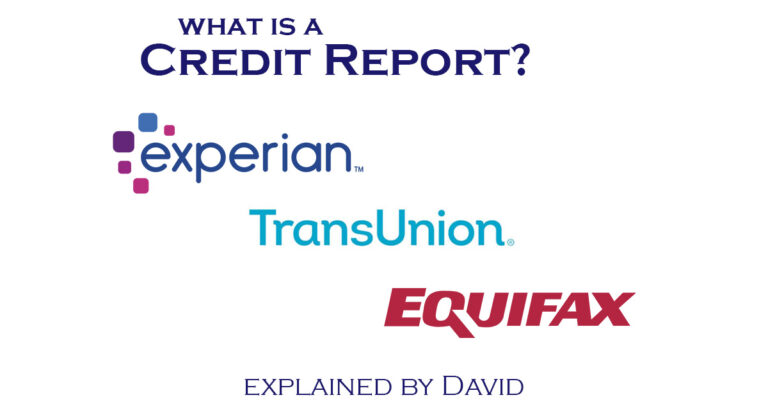
What is a Credit Report?
A credit report is a collection of statements of information about your credit activity and current credit situation. Loans and creditors report a statement to you and credit monitoring agencies like TransUnion. Statement reports initially come from lenders you use for financing, reflecting your behavior with that account. Credit bureaus collect all statements reported to them and provide a full report including public records. By calculating key factors on individual accounts and total average across all accounts a credit score can be tallied. Credit scores help lenders predict how likely you are to make payments on time, your risk level, etc. A high score usually makes it easier to qualify for a credit card or loan and may result in a better interest rates. Scores are produced by companies like FICO (Fair Isaac Corporation) and VantageScore.
Credit Bureaus:
- TransUnion
- Equifax
- Experian
A credit bureau collects and analyses individual credit information and sells it to creditors for a fee (Hard Inquiry), so they can make decisions about granting loans or credit. The top three credit bureaus in the U.S. are listed above, although there are several others. Credit bureaus get data from your creditors, such as a credit card lender, bank, or any finance company. They also get information about you from public records, such as property and court records. Some lenders may only report to one bureau or none. When in doubt ask if they report to all three credit bureaus.
Information contained on Credit Reports:
Personal information
- Your Name – Any name you may have used in the past in connection with a credit account, including nicknames
- Date of Birth
- Social Security Number
- Addresses – Current and former residences.
- Phone Numbers
- Employer
- Credit Accounts – Current and historical, including the type of account (mortgage, installment, revolving, etc.)
- Creditor/Loaner – Name of company
- Credit Utilization – Limit and amount used.
- Dates the account were opened and closed
- Payment History
- Account Balance
- Collection Items
Public records
- Bankruptcies
- Civil Suits and Judgments
- Foreclosures
- Liens
A credit report may include information on overdue child support provided by a state or local child support agency or verified by any local, state, or federal government agency.
Hard Inquiries
- Companies that have accessed your credit report.

Three Credit Scores
You do not have just one credit score, but three. Each credit bureau produces a credit report that can be calculated into a score. Each score individually may vary depending on who reported to them and when.

